The aesthetics of Aurat March 2020
Amid controversy over slogans, marchers show off their creativity
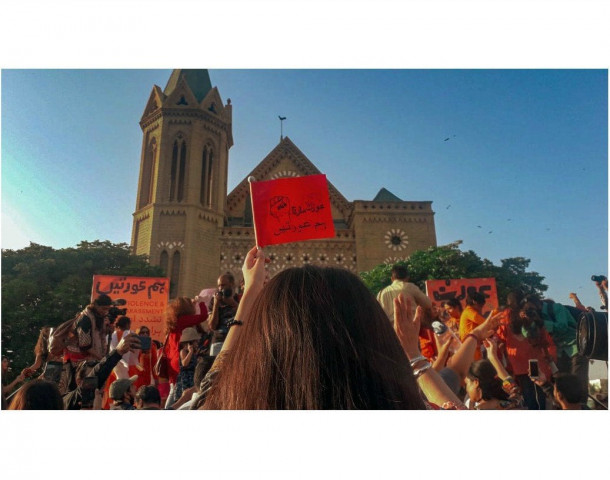
March 8 marks International Women's Day around the globe but in Pakistan, it also marks the single most polarising day of the year - the day of the Aurat March.
Despite unprecedented backlash from the far-right, on Sunday, Karachi witnessed hundreds protesting with increased fervour, demanding their rights. The venue echoed with chants of 'Hum lekay rahengay, Azadi,' (we will take our freedom, come what may) as hands swirled in the air to the sound of Laal Meri.
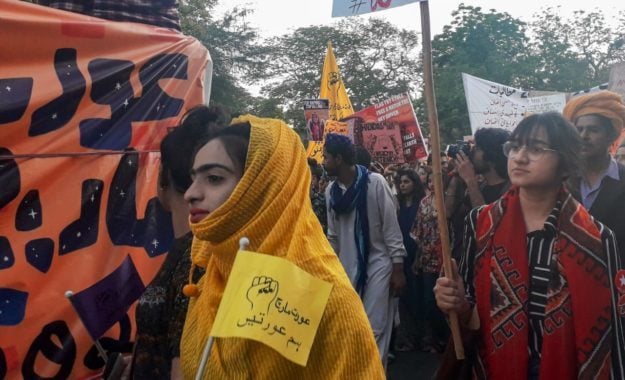
PHOTO: ASFA SULTAN/EXPRESS TRIBUNE
The evening saw a series of emotions and diverse groups of people coming together for similar objectives. But what visuals did they bring to aid their cause? From where we stood, they could either be perceived as a threatening array of colours too bold to be worn by the ordinary - or a rainbow that fades eventually but scrapes its way across the sky, demanding to be noticed and remembered.
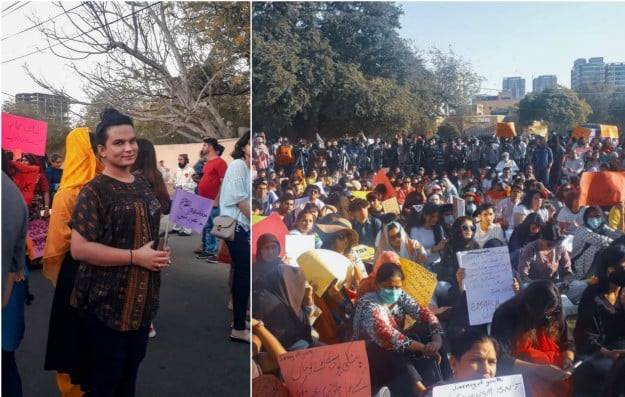
PHOTO: ASFA SULTAN/EXPRESS TRIBUNE
The inciting slogans from preceding years had to be toned down without becoming ineffective by any measure. As the march matured, participants understood that their witty slogans may not convey the right message to the audience they were trying to reach.
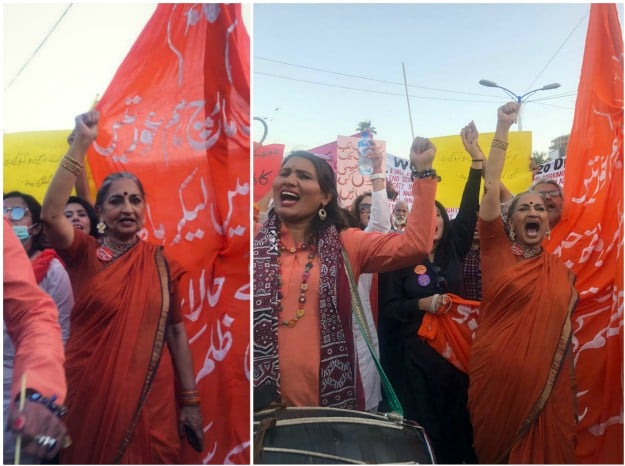
PHOTO: YUMNA AFTAB/EXPRESS TRIBUNE
The year's theme demanded bodily autonomy, terming itself as 'mera jism meri marzi' (my body, my choice), but for some, the slogans had to be broken down lest the general public deemed them 'immoral,' or 'vulgar'. Thus, many produced some interesting works of craft with their pens, papers and, well, memes.
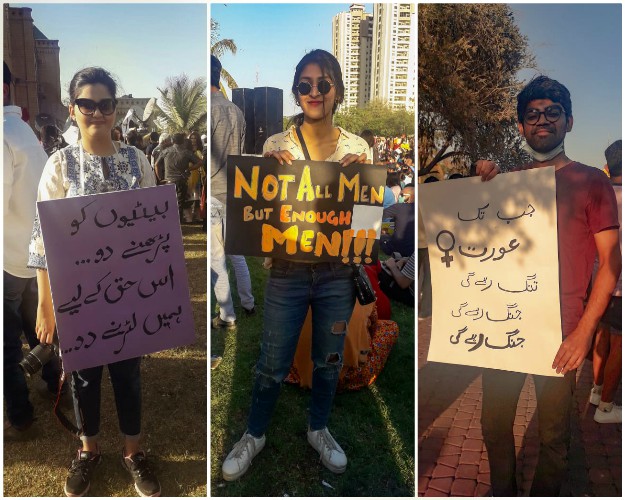
PHOTO: ASFA SULTAN/EXPRESS TRIBUNE
You don't speak German with the French, unless you want to tick them off. So you put a spin on that, in a fun way of course, and produce Meray Paas Tum Ho memes with Khalilur Rehman Qamar's face etched on the posters, which is exactly what many did.
Read: Aurat March placards turn up the heat against Khalilur Rehman
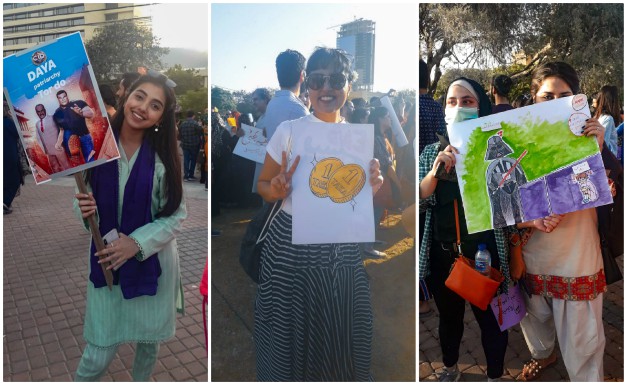
PHOTO: ASFA SULTAN/EXPRESS TRIBUNE
One poster even called for Daya (from CID) to break the patriarchy (instead of the door), while another used Deepika Padukone's picture to point out how not every girl dreamed about aik chutki sindoor.
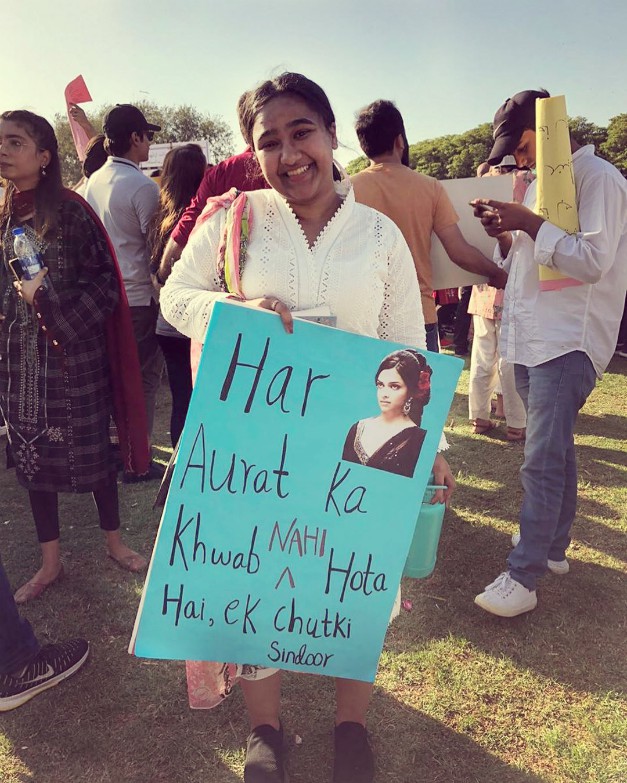
PHOTO: WOMANISTAN/INSTAGRAM
But many knew that even that would provoke hatred, so they created many versions of the single phrase that drove the primary discourse before the march. Thus, it broke into questions like 'mera poster, tumhari marzi?' (my poster, your choice?), making way for 'mera mazhab, meri marzi' (my religion, my choice) in an allusion to forced conversion, and 'mera wajood, meri marzi' (my existence, my choice), with the four words taking many forms but revolving around similar notions.
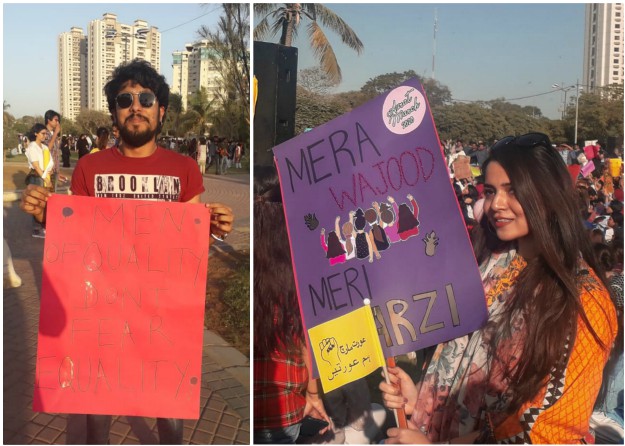
PHOTO: ASFA SULTAN/EXP RESS TRIBUNE
Those who did not want to question these notions, or target any figures to put a point across, came up with several other ways to express their demands without politicising them. They hung slogans from their ears and around their necks, claiming that their time is here. They marched across the roads, donning ajrak with slogans wrapped across their bodies.
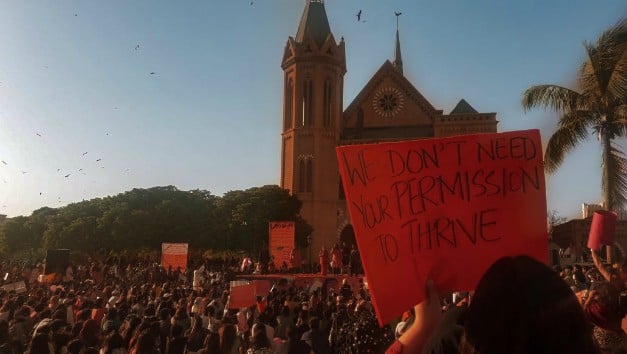
PHOTO: ASFA SULTAN/EXPRESS TRIBUNE
Others, however, highlighted that they don't require anyone's permission to thrive, with some simply deciding to look like Frida Kahlo as their eyebrows did the talking.

PHOTO: ASFA SULTAN/EXPRESS TRIBUNE
And although the march has wrapped up until next year, the demand for rights and freedom still remains. And so do the questions - will the need for such creative measures present itself with such urgency in future years? Or will dissent fall silent?

PHOTO: ASFA SULTAN/EXPRESS TRIBUNE
Here's hoping that women - and those who stand with them - continue to find it in themselves to express without restraint.
Published in The Express Tribune, March 10th, 2020.



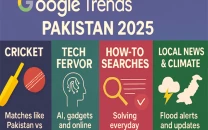














COMMENTS
Comments are moderated and generally will be posted if they are on-topic and not abusive.
For more information, please see our Comments FAQ